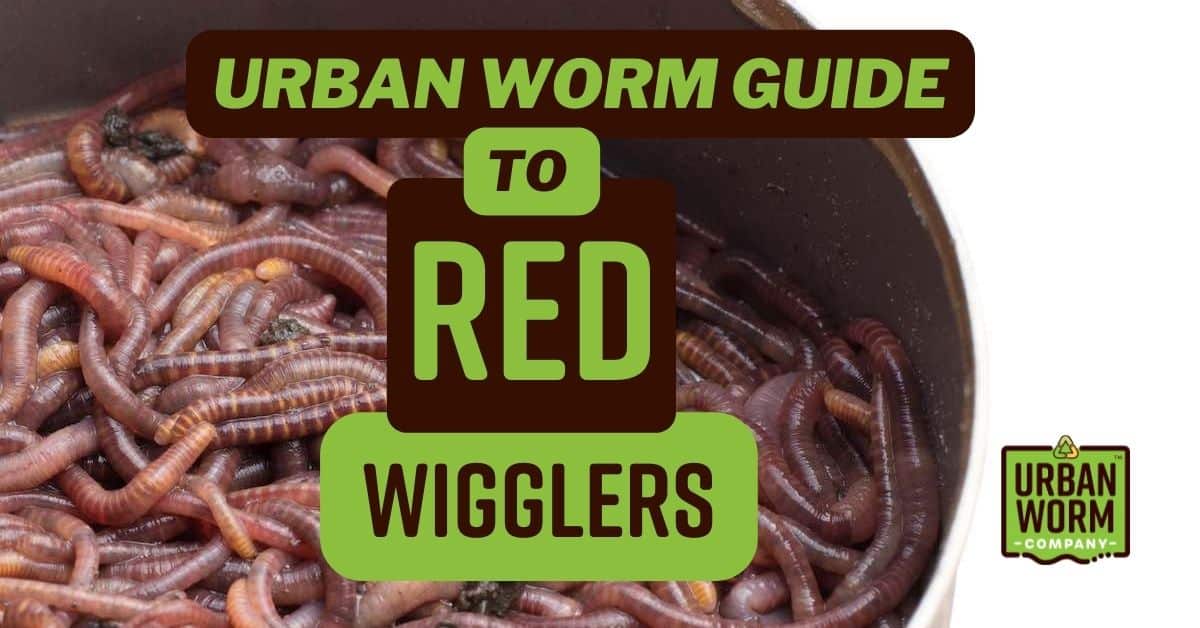Red Wiggler Worms Demystified: Opening the Tricks of Vermiculture for Greener Living and Nutrient-Rich Dirt
In the realm of lasting practices for improving dirt quality and advertising eco-conscious living, red wiggler worms play an essential yet frequently overlooked duty. These simple creatures have the remarkable capacity to transform natural waste right into nutrient-rich castings that act as a potent natural plant food. By delving into the world of vermiculture, one can discover a variety of benefits that prolong much past traditional composting techniques. Recognizing the complexities of caring for these worms, enhancing their setting, and harnessing their spreadings can bring about a greener way of living and healthier dirt for plants to thrive.
The Function of Red Wiggler Worms
Red Wiggler worms play a vital function in composting systems by efficiently breaking down raw material right into nutrient-rich spreadings. These voracious eaters eat a variety of natural materials, such as cooking area scraps, backyard waste, and paper products. As they feed, the worms' digestive processes break down the organic matter right into a penalty, dark, and nutrient-dense product recognized as worm spreadings or vermicompost.
The castings generated by Red Wiggler worms are very beneficial for dirt wellness and plant development. They are abundant in crucial nutrients like phosphorus, potassium, and nitrogen, which are important for sustaining healthy and balanced plant development. In addition, worm castings consist of beneficial microorganisms and enzymes that help improve dirt framework, rise water retention, and improve nutrient uptake by plants.
Advantages of Vermicomposting

Additionally, vermicompost, the nutrient-rich final product of vermicomposting, functions as an outstanding organic plant food and dirt conditioner. It boosts dirt structure, boosts soil aeration, and raises dirt dampness retention. These homes add to much healthier plants with more powerful root systems and much better resistance to parasites and conditions. Vermicompost also enriches the soil with important nutrients like phosphorus, potassium, and nitrogen, promoting plant development and total soil fertility.
Furthermore, vermicomposting assistances sustainable gardening methods by offering a natural and chemical-free option to synthetic fertilizers. Red Wiggler Worms. This environmentally pleasant strategy not only enriches the soil but additionally helps in reducing reliance on harmful chemicals, promoting a greener and a lot more sustainable way of horticulture
Establishing Up a Worm Container
When establishing a worm bin for vermicomposting, appropriate setup is critical to make sure the success of the composting process. The very first step in setting up a worm bin is selecting an ideal container. This can be a plastic bin or wood box that offers sufficient space for the worms to walk around and has appropriate drain openings to avoid waterlogging. Next off, a bed linens product such as shredded paper, cardboard, or coconut coir need to be included in the bin. This bedding supplies a comfy environment for the worms and assists maintain dampness degrees.
After adding the bed linen, present the red wiggler worms to the bin. The worms need to after that be offered with food scraps such as fruit and vegetable peels, coffee grounds, and eggshells.
Frequently keep an eye on the dampness levels and temperature level in the worm bin to make sure optimum conditions for the worms. With appropriate arrangement and upkeep, the worm container will efficiently convert natural waste right into nutrient-rich garden compost for your plants and garden.
Harvesting Worm Spreadings
To successfully gather nutrient-rich worm castings from your vermicomposting system, an organized harvesting approach is necessary. When it comes time to gather the worm spreadings, there are a couple of crucial actions to comply with to ensure a successful procedure.

Troubleshooting Common Issues
Determining and resolving typical difficulties that might arise during the vermicomposting procedure is crucial for preserving a healthy and efficient worm container. Including excess food scraps can lead to an accumulation of moisture and acidity in the worm bin, possibly hurting the worms. An additional concern is undesirable smells emanating from the worm container.
Furthermore, if the worm populace is decreasing or the worms show up harmful, maybe due to ecological stressors such as extreme temperatures or pH levels. Keeping track of these aspects and making needed adjustments is essential for the wellness of the worms. By troubleshooting these common issues promptly, vermicomposters can ensure a effective and smooth vermicomposting procedure while preserving a growing worm population.

Verdict
In conclusion, red click now wiggler worms play a vital function in vermiculture by breaking down natural matter into nutrient-rich soil. Setting up a worm bin is crucial for successful vermiculture, and harvesting worm castings offers important compost for horticulture.
As they feed, the worms' digestive procedures break down the natural issue into a fine, dark, and nutrient-dense material understood as worm castings or vermicompost.
The spreadings produced by Red Wiggler worms are very advantageous for soil wellness and plant development. Including excess food scraps can lead to an accumulation of moisture and level of acidity in the worm bin, potentially damaging the worms.Additionally, if the worm populace is declining or the worms appear undesirable, it might be due to environmental Recommended Site stressors such as extreme temperatures or pH degrees. Establishing up a worm container is necessary for effective vermiculture, and gathering worm spreadings supplies valuable garden compost for horticulture.
Comments on “Get Red Wiggler Worms - Ideal for Composting and Horticulture”